EU referendum: Will Turkey's EU hopes affect UK vote?
- Published
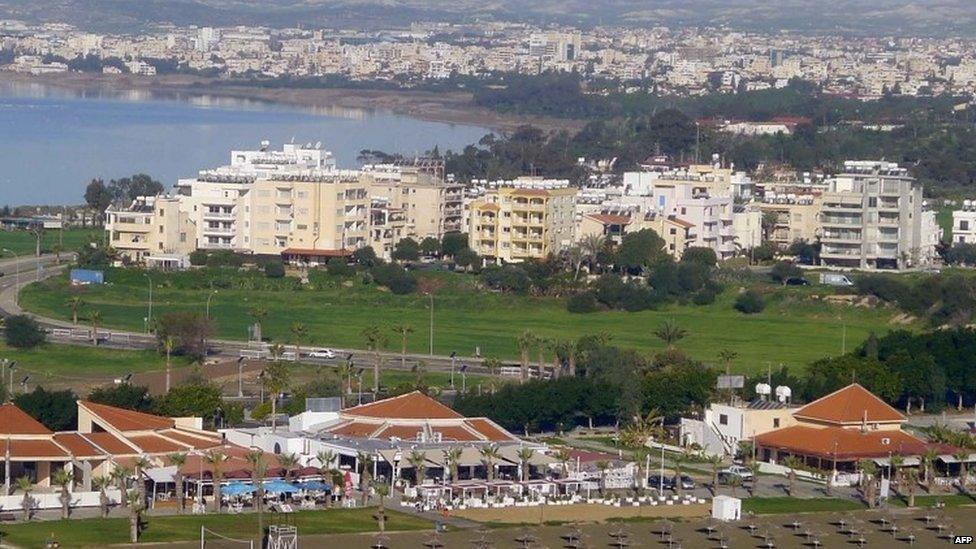
Normalising relations with Cyprus is a major stumbling block to Turkey's EU ambitions
The question of whether Turkey and six Balkan countries will join the European Union and, if so, what it will mean for the UK has become a live issue in the EU referendum campaign.
Campaigners wanting to leave the EU say such a further enlargement could result in a migration "free-for-all" and pose a "serious and direct threat" to UK public services. Is there any truth in this?

Who wants to join the EU and why?
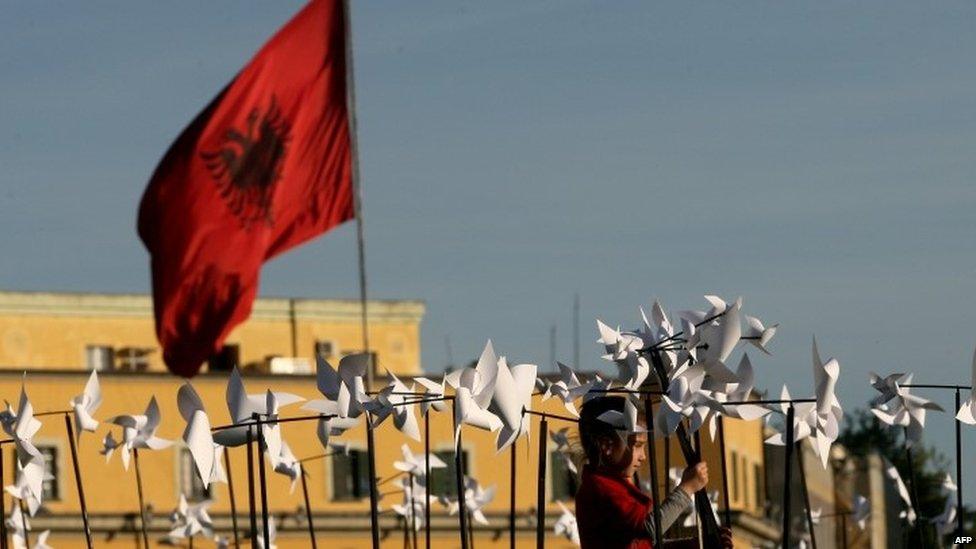
Albania is among those in the queue to join the European Union
Turkey, Serbia, Albania, Bosnia-Herzegovina, Montenegro, Kosovo and Macedonia all hope to join the European Union.
Turkey first approached the European Economic Community - the predecessor to the EU - about membership almost 30 years ago. But progress has been extremely slow.
In the case of the others - Macedonia (applied in 2004); Montenegro (2008); Serbia (2009); Albania (2009) - their interest is much more recent. Bosnia only submitted its application earlier this year, while Kosovo has yet to do so officially.
Despite the current problems in the EU, membership is still widely coveted. It can bring enormous financial benefits and a fair amount of political prestige, particularly for countries with recent histories of conflict and economic strife.
Getting to sit in the room alongside mature democracies and some of the largest economies in the world, when big decisions are taken, is a huge political prize - proven by the fact that EU membership has nearly doubled in the past 15 years.

How long will it take?
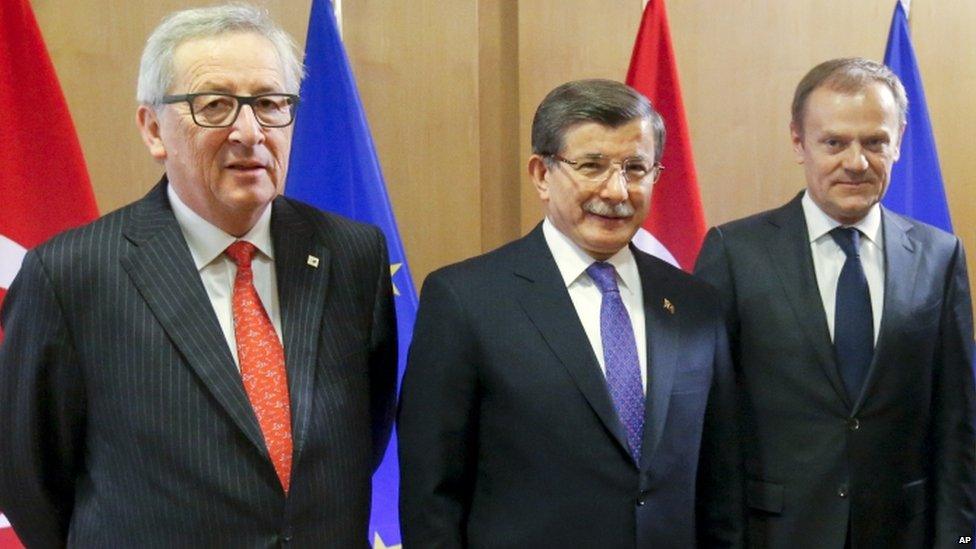
No new countries will be admitted before 2019, EU leaders have said
It is impossible to say with any certainty, but the process by which a country applies to join the EU - known as accession - takes years. For Croatia, the newest EU member, which joined the club in 2013, it took eight years.
The candidate countries are at different stages and face different obstacles. Detailed negotiations have been taking place with Serbia and Montenegro for several years, while talks with Turkey first began in 2005.
Nothing will happen for at least three years, because European Commission President Jean-Claude Juncker imposed a five-year moratorium on enlargement in 2014.
Seasoned EU-watchers say Montenegro and Serbia are, to coin a phrase, at the front of the queue, while there are major hurdles to overcome with Albania, Bosnia, Kosovo and Macedonia.
As for Turkey, the challenges it faces in meeting the membership criteria are so big, and it has become such a thorny issue, that its prospects are receding.

Is Turkey a special case?

Normalising relations with Cyprus is a major stumbling block to Turkey's EU ambitions
In short, yes. Turkey has a customs union with the EU, but its troubled relations with the Republic of Cyprus have always been a unique stumbling block - a situation exacerbated by Cyprus' own admission to the EU in 2004.
Turkey would also be the first country with a majority Muslim population to join the EU, in itself a major development.
Some see a future advantage for Europe if many young Turkish workers fill jobs, as ageing populations cause the labour force to shrink.
But the migrant crisis, caused by the five-year civil war in Syria, has fuelled doubts among those EU politicians who, in principle, have always been in favour of letting Turkey in.
More than two million Syrian refugees have fled to Turkey, a country which already had a population of nearly 76 million.
EU leaders are desperate to uphold free movement rules, enshrining the right of any EU national to live and work elsewhere in the union. They are nervous that admitting a country of Turkey's size could make this untenable.
Under a recent agreement with Turkey to curb the migrant influx to Greece, the EU undertook to "re-energise" the stalled accession talks.
But there are major concerns about Turkish human rights violations, including curbs on the media and rule of law - all key issues when judging a country's fitness to join the EU.
At the same time, economic hardship, Islamist terror and the migrant crisis have fuelled a nationalist backlash in much of Europe, often expressed as hostility to Islam.

What are those who want to leave the EU saying?

Leave campaigners say immigration is putting intolerable pressure on the UK's schools, roads and hospitals
Leave campaigners have sought to exploit the uncertainty surrounding future enlargement to reinforce one of their key campaign arguments - that EU membership means the UK cannot control who comes into the country.
They are warning that the UK will have to help financially under-write the process of preparing Turkey and other countries for joining the EU.
And they say it would give an extra 88 million people - that's the combined populations of the seven candidate countries - the right to live and work in the UK under current rules, and the British public might not even be consulted.
Prominent Leave figures such as Michael Gove and Iain Duncan Smith have said future enlargement will put an "unquantifiable strain" on public services that are already under pressure.
As evidence of this, they point to the spike in migration after Poland and nine other countries joined the EU in 2004 - when the option of transitional controls was not taken up - and the fact EU migration is driving the current high levels of net migration above 300,000.
Even politicians in favour of EU membership, such as Home Secretary Theresa May, have signalled that further enlargement needs to be reconsidered for countries with "poor populations and serious problems with organised crime, corruption and sometimes even terrorism".

And what about pro-EU campaigners?
Successive British government have been, in principle, in support of Turkey joining the EU if it meets the criteria, a position endorsed by David Cameron several times since he became prime minister.
But the mood music has definitely changed in recent months.
Ministers have emphasised that the UK has the right of veto over future prospective members, while insisting the talks with Turkey and other countries are unlikely to be rushed and, as such, the issue will not come to a head for a while.
Last month, George Osborne said a Turkish agreement was "not on the cards any time soon" and insisted the UK would not allow any free movement deal with countries which weren't closely aligned in terms of size and prosperity.
Pro-EU campaigners have also pointed out that if the UK votes to leave, it will have no say over the matter and could still find itself bound by freedom of movement rules like Norway, which is outside the EU but part of the European Economic Area.

- Published13 March 2016
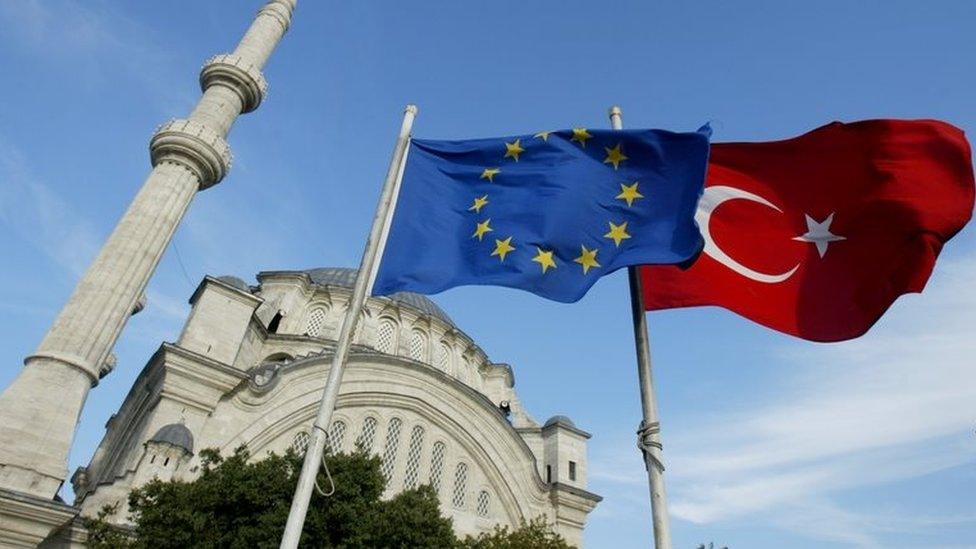
- Published15 March 2016
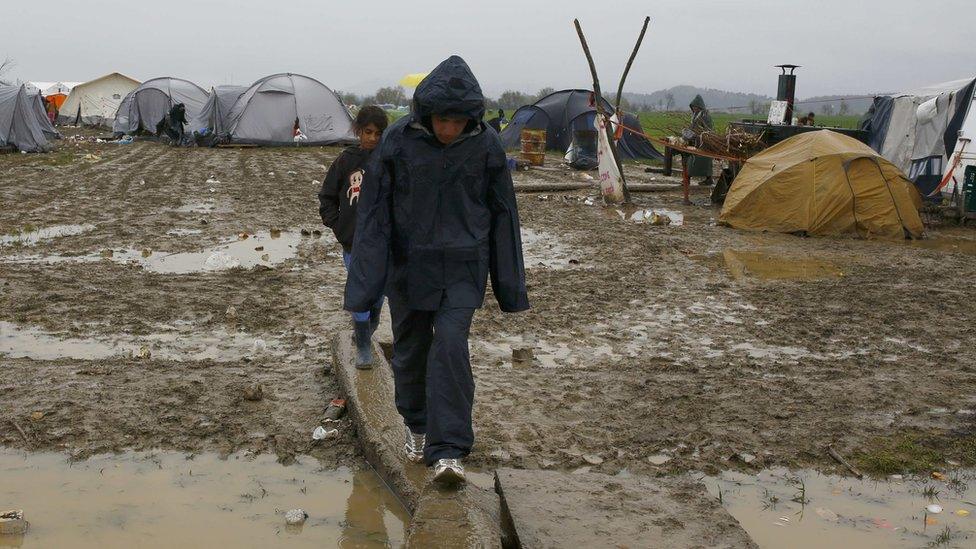
- Published2 September 2014